


Inbound Travel
Inbound arrangements.
- All inbound persons must pass temperature checks upon arrival. Those found with symptoms will be referred to the Department of Health for further handling.
- No further restrictions upon arrival.
Handling Arrangements for Persons Tested Positive After Arrival at Hong Kong
- For persons tested positive after arrival at Hong Kong, please refer to the webpage on Points to Note for Persons who Tested Positive .
Please refer to this webpage .
More Information
- Sustainability
- Latest News
- News Reports
- Documentaries & Shows
- TV Schedule
- CNA938 Live
- Radio Schedule
- Singapore Parliament
- Mental Health
- Interactives
- Entertainment
- Style & Beauty
- Experiences
- Remarkable Living
- Send us a news tip
- Events & Partnerships
- Business Blueprint
- Health Matters
- The Asian Traveller
Trending Topics
Follow our news, recent searches, cna explains: travelling to hong kong under its new quarantine rules here's what you need to know, advertisement.
Hong Kong is relaxing travel restrictions with a "3+4" quarantine model, as it takes a step towards gradually reopening borders.
A woman walks past a flight information board at Hong Kong International Airport on Aug 11, 2021. (Photo: AFP/Isaac Lawrence)
Gabrielle Andres
From Friday (Aug 12), Hong Kong will pare down the COVID-19 hotel quarantine period for all arrivals from seven days to three, as part of measures to gradually ease some of the world’s most stringent pandemic restrictions.
Previously, inbound travellers had to spend at least a week in hotel quarantine and undergo several COVID-19 tests, provide faecal samples for babies and grapple with multiple forms.
Under new rules announced on Monday, inbound travellers will only need to serve a three-day quarantine at a quarantine hotel, before going home or staying in a non-quarantine hotel for the next four days.
During this period, they must continue to undergo medical surveillance. They can go out and take public transport, but there are limits on the places they are allowed to enter.
Hong Kong Chief Executive John Lee said the new measures are a “way of striking a balance between minimising the risks of COVID-19 transmission and keeping Hong Kong a competitive city”.
HOW DOES THE QUARANTINE SYSTEM WORK?
If you’re planning to travel to Hong Kong, note that under the new “3+4” model, you need to stay in a designated quarantine hotel for three days from your arrival date, which counts as Day 0.
After obtaining a negative test result in the morning of Day 3, you may go home or move to a non-designated quarantine hotel, to complete another four days of medical surveillance.
If you test negative throughout, you can complete medical surveillance in the morning of Day 7.
You still need to monitor your health for the entire seven days and take daily antigen rapid tests (ARTs) until Day 10.
For example, if you arrive on Aug 12, you will complete your mandatory hotel quarantine on the morning of Aug 15, and complete medical surveillance in the morning of Aug 19.
These rules apply to all travellers regardless of vaccination status.
EXACTLY HOW MANY COVID-19 TESTS MUST I TAKE?
Be prepared to take at least five polymerase chain reaction (PCR) tests and daily ARTs until Day 10.
Upon arrival in Hong Kong, you must take a PCR test at the airport and then on Day 2 during your mandatory hotel quarantine.
After leaving the designated quarantine hotel, you must go to community testing centres or a mobile specimen collection station to get swabbed on Days 4, 6 and 9.
You must test negative on an ART before heading out.
You can also arrange for a self-paid test by professional swab sampling at a local medical institution recognised by the Hong Kong government.
CAN I GO OUT DURING THE MONITORING PERIOD?
Until you test negative in the morning of Day 3, no.
After that, upon clearing the mandatory hotel quarantine, you will be assigned an amber code in Hong Kong’s LeaveHomeSafe mobile application, to restrict movement.
With an amber code, you can go out - provided you first test negative in your daily ART.
But you will be limited to "daily essential activities" deemed by the Hong Kong government to be of lower risks, such as taking transport, going to work and entering markets or supermarkets.
You cannot enter high-risk premises that involve mask-off or group activities, such as restaurants, bars, hair salons and fitness centres.
You will also not be allowed to visit residential care homes for the elderly and people with disabilities, schools or designated healthcare premises.
WHAT HAPPENS IF I TEST POSITIVE?
If you test positive for COVID-19 upon arrival, you will be issued an isolation order and transferred to a government isolation centre.
You will also be issued a red code.
All positive COVID-19 cases will not be allowed to leave their isolation location.
If you have received at least two doses of a COVID-19 vaccine, isolation will be considered completed after receiving negative ART results on the sixth and seventh day after testing positive.
Your red code will then automatically change to blue.
Those who have not been vaccinated, or have only received one vaccine dose, will need to complete a 14-day isolation period at the designated site.
WHY IS HONG KONG RELAXING ITS RULES?
According to the Hong Kong government, surveillance data shows that about 80 per cent of imported COVID-19 cases were detected by the first two PCR tests taken upon arrival.
The overall infection detection rate among arrivals after the third day of quarantine in designated hotels was also lower that the rate in the local community.
With this, mandating a longer period of hotel quarantine is “neither cost-effective nor precise and targeted, causing unnecessary disruption to travellers”, said Hong Kong authorities.
The decision by the government also considered Hong Kong’s position as an international financial and commercial centre, and thus the need to connect with different parts of the world to maintain business travel and economic activities.
BOOKMARK THIS: Our comprehensive coverage of the COVID-19 pandemic and its developments
Download our app or subscribe to our Telegram channel for the latest updates on the coronavirus pandemic: https://cna.asia/telegram
Sign up for our newsletters
Get our pick of top stories and thought-provoking articles in your inbox
Get the CNA app
Stay updated with notifications for breaking news and our best stories
Get WhatsApp alerts
Join our channel for the top reads for the day on your preferred chat app
Related Topics
Also worth reading, this browser is no longer supported.
We know it's a hassle to switch browsers but we want your experience with CNA to be fast, secure and the best it can possibly be.
To continue, upgrade to a supported browser or, for the finest experience, download the mobile app.
Upgraded but still having issues? Contact us
Quarantine-free travel advocated
Chief Executive Carrie Lam
With the adoption of stringent measures to prevent the importation of COVID-19 cases, Hong Kong has successfully prevented imported cases from spreading into the community and maintained zero local infection. As the epidemic situation is clearly under control, Hong Kong people hope that quarantine-free travel between Hong Kong and the Mainland can be resumed so that they may enter the Mainland without being subject to quarantine. I and the entire Hong Kong Special Administrative Region Government have been taking the matter very seriously. The first expert meeting between the relevant authorities of Hong Kong and the Mainland was held in Shenzhen yesterday, with a view to creating conditions for resuming quarantine-free cross-boundary travel.
How the epidemic has developed
Having gone more than 40 days without recording a single local case since August 17, Hong Kong has basically achieved zero infection. In fact, the epidemic situation in Hong Kong has been under control for some time. The handful of local cases identified earlier were either re-positive or exceptional cases where no community infections have occurred as a result. For the imported cases recorded during the past month, all of them were detected upon arrival or during quarantine under the stringent measures to prevent the importation of cases. While these cases did not pose a threat to the community, we dare not take them lightly. Erring on the side of caution, we enforced compulsory testing measures for every confirmed case that had stayed in Hong Kong during the incubation period. Similarly, although the total number of cases worldwide has shown signs of decline recently, hundreds of thousands of cases involving various virus variants are still recorded every day, and with some countries having given up on achieving zero infection, we cannot be too optimistic about the situation.
Anti-epidemic efforts
The current stringent measures to prevent the importation of cases undoubtedly cause inconvenience and difficulties to those who need to return to Hong Kong, but they are indeed necessary. The Government has reacted swiftly to ensure the smooth operation of the measures in general. For example, the Food & Health Bureau has been in constant contact with the governments of different places and has accepted vaccination records issued by many more places as recognised vaccination records, so as to meet the entry requirements. In response to the earnest demand for foreign domestic helpers (FDHs), the Government has also opened 800 units in Penny’s Bay Quarantine Centre on Lantau Island, as an exceptional arrangement for quarantine of fully vaccinated FDHs upon arrival in Hong Kong. As we have explained publicly, the thousands of FDHs should only return to Hong Kong in batches in a gradual manner. Otherwise, should there be many cases of infection, our hospital system may become overloaded. Quarantine units (including the 800 units in Penny’s Bay Quarantine Centre and the 400 units in a designated hotel) were provided in such a way so as to limit the number of arrivals to Hong Kong. I appeal to FDH employers for their understanding. The Labour & Welfare Bureau will closely monitor the situation, consider adjusting the number of quarantine units on the premise of safety, and strive to optimise the booking process.
In addition, we have been actively striving to boost vaccine uptake. The Government, together with our experts, have been constantly explaining the situation and calling on members of the public to get vaccinated, while the business sector and various organisations have provided incentives to encourage their employees and the public to get the jab. As at September 26, the first dose vaccination rate among all eligible people was 66.2%; among those aged 20 to 59, the rate exceeded 70%; and among people aged 40 to 49, the rate even exceeded 80%. However, the vaccination rate among the elderly is still not good enough. Only 40% of the 70 to 79-year-old population, and less than 15% of people over 80 years old have been vaccinated. As the elderly are at a higher infection risk, the current situation can hardly be described as satisfactory. If a new wave of the epidemic arrives, the consequences may be disastrous. We will continue to pursue all methods that can facilitate vaccination of the elderly. We also appeal to all sectors of the community to continue their efforts, such as assisting the Government in promoting outreach vaccination services at the district level.
The major measures introduced are set out here in chronological order:
Striving to resume quarantine-free travel with the Mainland
Following the new direction in fighting the pandemic that I announced on April 12, social distancing measures have been relaxed cautiously and gradually and daily life has largely returned to normal. For instance, as estimated by the catering sector, the sales turnover of the catering industry during the Mid-Autumn Festival stood at 90% of the pre-epidemic level. The long-awaited Water World officially opened on September 20, attracting many fun seekers. The Election Committee Subsector Ordinary Elections were held on September 19. Face-to-face classes have been resumed in the new school year. The first school in Hong Kong that had reached a vaccination rate of 70% resumed whole-day face-to-face classes on September 27. All these have been conducted smoothly and in a risk-controlled manner with the implementation of anti-epidemic measures by people in various sectors and members of the public.
After the resumption of normal life, what many residents look forward to most is the resumption of cross-boundary people flow, especially quarantine-free travel with the Mainland. In fact, the inability to resume cross-boundary travel between Hong Kong and the Mainland has a great impact on residents of both places in their daily life, study, family visits, work and business. Some of them even have to be separated from family members for a long period of time. Along with the stabilisation of the epidemic situation in Hong Kong, the implementation of quarantine-free travel with the Mainland is at present our primary goal.
The Return2hk Scheme, which allows quarantine exemption for Hong Kong residents returning from the Mainland, has been operating for a period of time. Also, the Come2hk Scheme, through which non-Hong Kong residents coming to the city are not required to undergo quarantine, commenced on September 15, marking a step closer to quarantine-free travel with the Mainland. On quarantine-free travel to the Mainland by Hong Kong people, I have been continuously reflecting this aspiration to the central authorities for some time, expressing the hope of setting up meetings for communication between experts on both sides as soon as possible to create conditions for quarantine-free travel with the Mainland. The Chief Secretary yesterday led a delegation to Shenzhen, including experts from the Centre for Health Protection and a member of the Government’s Expert Advisory Panel, Prof David Hui, for a meeting with the Mainland ministries and experts. They are proactively following up on the issues raised at the meeting. The Hong Kong SAR Government will spare no effort to achieve its goal.
Chief Executive Carrie Lam issued this article titled Maintaining Zero Infection, Striving to Resume Quarantine-free Travel with the Mainland on September 27.
- Work & Careers
- Life & Arts
Hong Kong relaxes Covid quarantine rules for travellers from mainland China

- Hong Kong relaxes Covid quarantine rules for travellers from mainland China on x (opens in a new window)
- Hong Kong relaxes Covid quarantine rules for travellers from mainland China on facebook (opens in a new window)
- Hong Kong relaxes Covid quarantine rules for travellers from mainland China on linkedin (opens in a new window)
- Hong Kong relaxes Covid quarantine rules for travellers from mainland China on whatsapp (opens in a new window)
Primrose Riordan and Tabby Kinder in Hong Kong
Roula Khalaf, Editor of the FT, selects her favourite stories in this weekly newsletter.
Hong Kong will allow people from mainland China to visit without having to face its quarantine procedures in the city’s first serious relaxation of its strict Covid-19 entry requirements for tourists.
But critics of the Hong Kong government’s quarantine policies, which will begin on September 15, said it was another sign the Asian financial centre was prioritising a travel bubble with mainland China over the international links important to executives living in the city.
Under the plan, up to 2,000 non-Hong Kong residents from the mainland and Macau will be allowed to enter the territory each day without having to undergo quarantine, said Carrie Lam, the city’s leader. However, visitors will still be subject to a hotel quarantine on their return to mainland China.
Companies welcomed the move but financial executives said they were still awaiting a broader reopening plan in which Beijing would provide a reciprocal exemption from its quarantine requirements.
The share prices of retailers such as jewellers and beauty brands rallied on Tuesday on hopes that the relaxed quarantine rules would boost the local economy.
Travellers from the mainland have historically made up the bulk of tourism to Hong Kong. Shares in Chow Tai Fook Jewellery Group, which is controlled by the family of the late billionaire Cheng Yu-tung, rose as much as 4 per cent on the news.
Hong Kong has been successful at containing coronavirus, with just 212 deaths, but its strict quarantine policies have irritated international business , which argued the rules were undermining the city’s status as a financial hub.
A Wall Street banking executive said mainland China was the most popular destination for Hong Kong staff, so opening up business trips would be a “huge step”, although they hoped it would be extended to allow bankers to go to China without quarantining.
“We’re all for getting things moving again between Hong Kong and the mainland, but this policy seems very one-sided,” the executive said.
Hong Kong is pursuing a zero-Covid policy, in line with demands from mainland China, its biggest trading partner, which has yet to reciprocate to substantially ease travel curbs on the territory.
To meet China’s requirements, Hong Kong has banned most international non-residents from entering and forced residents travelling from a number of countries to undergo two or three weeks of hotel quarantine .
“We are playing a safe strategy that we must keep Covid at bay before we talk about a full . . . open border or economy,” Edward Yau, Hong Kong’s secretary for commerce and economic development, has said.
Criticism of the government intensified late last month over a U-turn on a plan to ease the international travel restrictions.
The European Chamber of Commerce in Hong Kong (EuroCham) warned that the quarantine policies could cost the city its competitive edge in attracting top talent and said people were already leaving “for good”.
“The announced relaxation is a positive sign for Hong Kong in general as it will allow for more visitors to come to Hong Kong. However, this has not changed our position,” said Frederik Gollob, chair of EuroCham.
The Hong Kong Exhibition & Convention Industry Association, which had previously relied on the city being a centre for international events and conferences, said on Monday that 45 per cent of its members may close within 12 months without subsidies and a road map for relaxing compulsory quarantine for business travellers.
A senior finance executive in Hong Kong told the Financial Times that the quarantine measures were causing “irrefutable damage” to the territory’s popularity as an international financial centre.
Global banks in Hong Kong have been able to apply for a specific scheme to exempt their top executives from lengthy quarantines in the city. However, 246 out of 325 applications under the scheme have been rejected or withdrawn, according to official figures.
Another plan allowing 5,000 Hong Kong residents a day to return from the mainland without quarantine was temporarily suspended because of an outbreak in China, but it is set to restart on Wednesday.
Hong Kong’s inoculation rate is slowing, with only 54 per cent of the population fully vaccinated against Covid.
Additional reporting by William Langley in Hong Kong
The return to the office
We want to hear from readers about plans for returning to their workplace. Are you under pressure to go back or are you looking forward to seeing colleagues? Tell us about your plans via this survey .
Coronavirus business update
How is coronavirus taking its toll on markets, business, and our everyday lives and workplaces? Stay briefed with our coronavirus newsletter. Sign up here
Promoted Content
Follow the topics in this article.
- Coronavirus Add to myFT
- Hong Kong politics Add to myFT
- Hong Kong economy Add to myFT
- China Add to myFT
- Primrose Riordan Add to myFT
International Edition
Hong Kong and Singapore to open quarantine-free travel bubble
The Hong Kong-Singapore travel bubble was meant to begin in November last year.
HONG KONG -- Hong Kong and Singapore have agreed to launch a travel bubble from May 26.
If all goes to plan, the long-delayed scheme will allow travelers to fly between two of Asia’s largest financial hubs without having to undergo quarantine.
Both Hong Kong and Singapore have brought community transmission largely under control and it will be the second major air route to open since Asia-Pacific closed its borders last year to curb the spread of COVID-19.
Last week Australia and New Zealand opened two-way quarantine-free travel, prompting plenty of emotional scenes as families and friends were finally able to reunite after more than a year.
MORE: Chinese artist’s Buddha Trump becomes ‘yuge’ online sensation
The Hong Kong-Singapore travel bubble was first meant to begin in November last year but it was put on hold after an uptick of cases in Hong Kong.
This time around, however, there are a bunch of extra caveats and heightened pre-flying requirements.
Travelers from Hong Kong will need to be fully vaccinated at least two weeks before their trip. Passengers on both sides will need to take two tests within 72 hours before their departure time, one test on arrival in their destination and another when they return to their home city.
Visitors will also need to download the local contact tracing apps to use during their stay.
For the first two weeks there will be just two designated flights a day between Hong Kong to Singapore, one each way, carrying 200 passengers.
If there are more than a daily average of five untraceable cases of community transmission over a one-week period, the arrangement will be suspended for two weeks.
Hong Kong’s secretary for commerce and economic development Edward Yau said the added precautions were necessary because of the risk of new variants.
“Taking into account the latest situation, for example, the emergence of a mutated strain and a longer incubation period, we see the need to build additional safeguards and are taking the opportunity to encourage Hong Kong residents to complete two doses of vaccination before they travel,” said Yau.
MORE: China approves plan to tighten control of Hong Kong elections so that only ‘patriots’ run the city
The travel bubble is welcome news for Singapore Airlines and Hong Kong’s flagship carrier Cathay Pacific, which have both been battered by the pandemic and travel restrictions.
Singapore Airlines called it “an important milestone” in their recovery and pledged to have all the health protocols in place.
Shares in both airlines were given a boost following the announcement.
There’s also hope that if these travel arrangements can prove to be effective, the bubble can grow to include other travel links in the region.
“To get this bubble up successfully, I think we’ll have a significant signaling effect to the rest of the world,” said Singapore’s transport minister Ong Ye Ku.
Related Topics
- Coronavirus
Trending Reader Picks

Biden's weakness displayed at debate: ANALYSIS
- Jun 27, 11:34 PM

Biden addresses poor debate performance
- Jun 28, 2:09 PM

5 takeaways from Biden-Trump presidential debate
- Jun 27, 11:56 PM

Fact checking the Biden-Trump presidential debate
- Jun 28, 1:06 AM

Parents at beach with kids die in rip current
- Jun 21, 8:38 AM
ABC News Live
24/7 coverage of breaking news and live events
Hong Kong eyes Jan. 8 to resume cross-border travel with mainland
- Medium Text
Sign up here.
Reporting by Xie Yu; Editing by Kim Coghill
Our Standards: The Thomson Reuters Trust Principles. New Tab , opens new tab
World Chevron

Far-right Alternative for Germany reports surge in membership
Leaders of the far-right Alternative for Germany on Saturday reported a surge in membership and vowed to build on its success in the European Parliament election as it targets wins in three state votes in the east this year.

- Skip to main content
- Skip to primary sidebar
- Skip to footer
- Newsletters
Hong Kong could allow quarantine-free travel by November: Health secretary
Travelers to Hong Kong could be allowed to skip Covid-19 quarantine — but with certain conditions attached — by November, according to an exclusive interview by the South China Morning Post with the city’s secretary for health, Lo Chung-mau.
In the interview, published on Wednesday, Lo said Hong Kong might opt for a different approach to lowering the risk of importation of the virus by inbound travelers by November, which could include PCR screenings and a ban from entering high-risk venues such as bars.
“Is nothing required any more? I think that would be a bit tough. At least PCR testing is needed. But does quarantine have to be confined to a fixed location? … Could it be medical surveillance, plus a yellow code and not appearing in a bar for the first few days? I won’t rule that out. I very much hope to achieve that as well because I like to travel too,” the paper quoted Lo as saying.
Inbound travelers to Hong Kong currently have to quarantine for seven days in hotels, at their own cost, and face six rounds of PCR testing before and after arriving.
The strict rules have triggered an exodus of expatriate workers, especially in the financial sector, raising concerns that the city is losing its global financial hub status following more than two years of closed borders
But it is planning on luring international businesses back with a major conference of global financiers and top bankers on November 1 and 2, organized by the Hong Kong Monetary Authority.
During the interview, Lo told SCMP that Beijing would not “blindly ask Hong Kong to follow its policies”, which is an example of how the “One Country, Two Systems” principle is applied in the city. He added, “This should delight all our foreign businesses.”
The health chief also revealed predictions of a rebound in the territory’s coronavirus cases and a peak in September with up to 10,000 patients needing hospitalization, but he pledged not to let the situation get out of control.
Lo, who is a liver transplant expert and a former chief executive at the University of Hong Kong-Shenzhen Hospital, has implemented a slew of policy reforms since he took the reins of the Health Bureau on July 1.
One of those changes was last week’s suspension of the controversial Covid-19 flight ban policy that had prohibited airlines from flying a particular route for five days if at least five passengers or five percent of the total number of passengers on board (whichever was higher) tested positive upon arrival.
However, inbound travelers now have to undergo an extra PCR test on the third day after their arrival .
The city has been seeing a rise in Covid-19 cases recently, with 2,000 to 3,000 new infections reported daily.
Share this post:
SUBSCRIBE TO OUR NEWSLETTER
Get the best of Coconuts delivered to your inbox!
BECOME A COCO+ MEMBER
Support local news and join a community of like-minded “Coconauts” across Southeast Asia and Hong Kong.

- Become a Patron
- Advertising
- Announcements
- Editorial Policies
- Grove: Coconuts Brand Studio

Hong Kong Free Press HKFP
Hong Kong news, breaking updates – 100% Independent, impartial, non-profit
Hong Kong hits back after Taiwan advises citizens to avoid unnecessary travel to city and mainland China

- Click to share on X (Opens in new window)
- Click to share on Facebook (Opens in new window)
- Click to share on LinkedIn (Opens in new window)
- Click to share on Mastodon (Opens in new window)
- Click to share on WhatsApp (Opens in new window)
- Click to share on Reddit (Opens in new window)
- Click to share on Telegram (Opens in new window)
- Click to print (Opens in new window)
The Hong Kong government has condemned Taiwan authorities after the self-ruled island issued its second-highest travel warning for Hong Kong, Macau and mainland China.
Taiwan on Thursday upgraded the travel alert, urging its citizens to “avoid unnecessary travel” to the above places, citing personal safety risks following the enactment of multiple security laws and a recent update to China’s judicial guidelines that allows the death penalty for advocating Taiwan independence.

“Mainland China, Hong Kong, and Macau have continued to increase and amend relevant national security laws in recent years. There have been quite a few cases of Taiwanese citizens being illegally detained, held, and interrogated when traveling to mainland China,” the Taiwanese government said in a Chinese statement published by the island’s Mainland Affairs Council (MAC).
It added that the new punishment guidelines issued by Beijing “seriously threatens the personal safety of Taiwanese citizens traveling to the mainland, Hong Kong, and Macau.”
“The Mainland Affairs Council reminds Taiwanese citizens to consider with caution the necessity of traveling to mainland China, Hong Kong, and Macau,” the statement read.
It continued: ” If there is a need to travel to mainland China, Hong Kong, or Macau, it is advised to avoid touching upon or discussing sensitive topics and affairs, filming ports, airports, and military exercise sites, and carrying books related to politics, history, and religion.”
In a statement issued on Thursday night, the Hong Kong government said the MAC’s move was “fact-twisting smears and slanders exposing malicious intentions.”
“The government strongly urges Taiwan authorities to stop smearing the national security law and the Safeguarding National Security Ordinance . The despicable manoeuvre with politics is doomed to fail,” the statement read.

It said that many countries had enacted legislation to safeguard national security, adding that the city’s security laws had “the international standard for the protection of human rights.”
Following the enactment of the Beijing-imposed national security law, Hong Kong established the Safeguarding National Security Ordinance , a homegrown security legislation known locally as Article 23. It came into effect on March 23 after being fast-tracked through the city’s opposition-free legislature.
Separate to the 2020 Beijing-enacted security law , the homegrown Safeguarding National Security Ordinance targets treason, insurrection, sabotage, external interference, sedition, theft of state secrets and espionage. It allows for pre-charge detention of to up to 16 days, and suspects’ access to lawyers may be restricted, with penalties involving up to life in prison . Article 23 was shelved in 2003 amid mass protests, remaining taboo for years. But, on March 23, 2024, it was enacted having been fast-tracked and unanimously approved at the city’s opposition-free legislature.
The law has been criticised by rights NGOs , Western states and the UN as vague, broad and “regressive.” Authorities, however, cited perceived foreign interference and a constitutional duty to “close loopholes” after the 2019 protests and unrest .
Death sentence
Beijing published a notice introducing punishment guidelines against Taiwan independence advocates and those inciting subversion last Friday.
According to the notice, “ringleaders” of independence efforts who “cause particularly serious harm to the state and the people” can be sentenced to death.
Other leading advocates could face jail terms ranging from 10 years to life imprisonment, the notice said.
It also stipulated that Chinese courts can hear the trial against defendants suspecting for advocating Taiwan independence even if the defendant is absent.
Support HKFP | Policies & Ethics | Error/typo? | Contact Us | Newsletter | Transparency & Annual Report | Apps
Help safeguard press freedom & keep HKFP free for all readers by supporting our team

latest national security stories
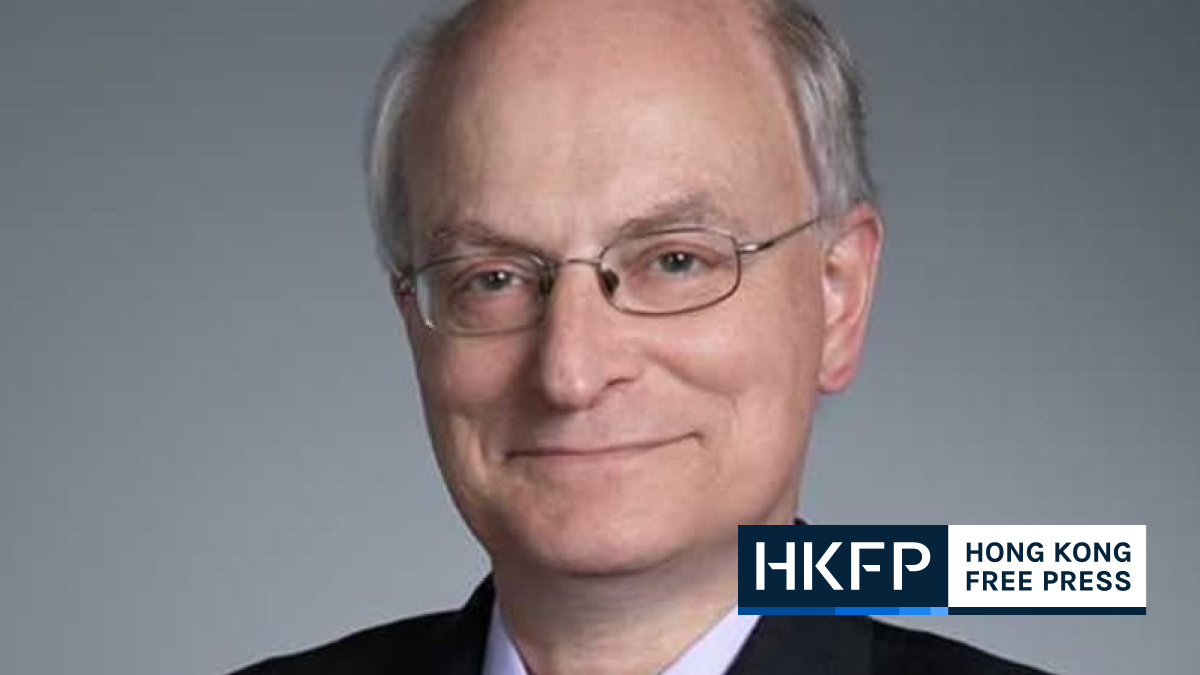
Ex-Bar Association chair says he left Hong Kong after being warned by nat. sec. police of possible sedition charge
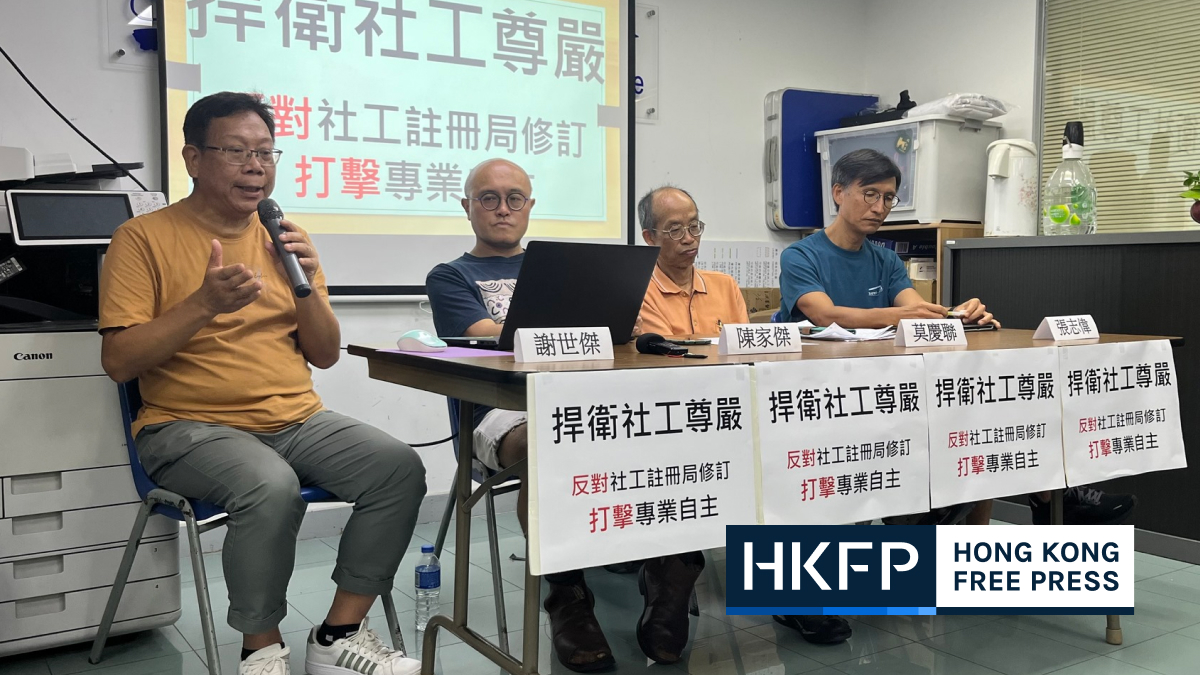
Almost 90% of social workers say helping marginalised groups to be made harder under gov’t-proposed overhaul
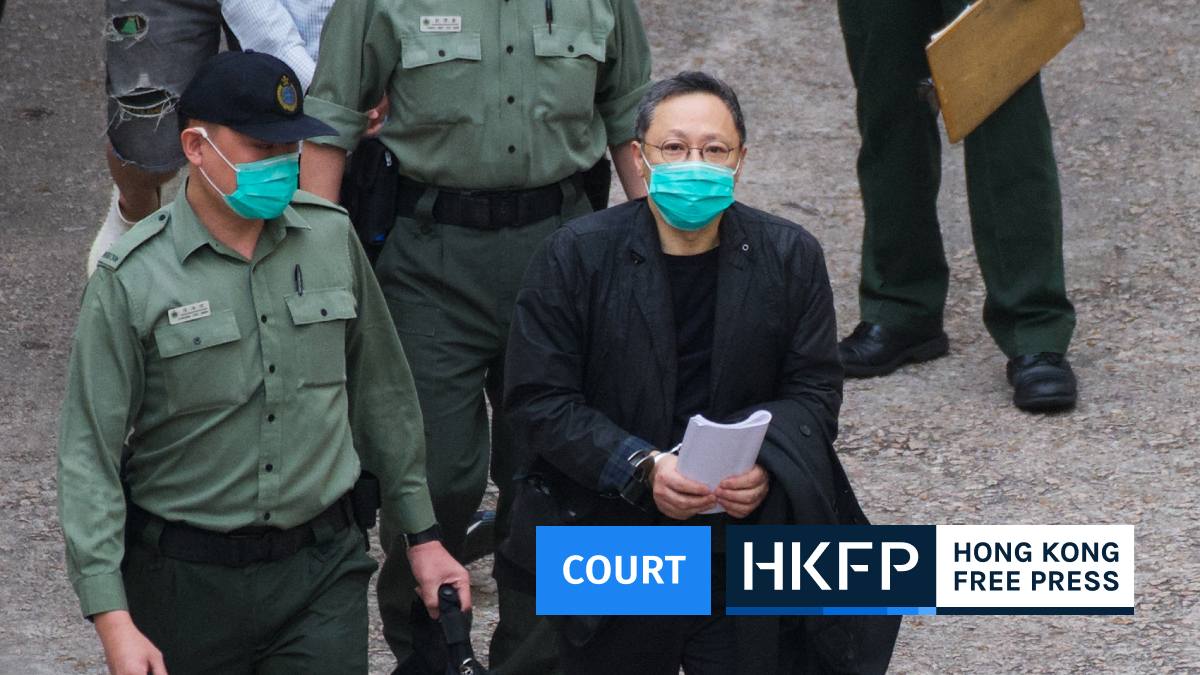
Hong Kong 47: Judges reject Benny Tai having ‘little or no role’ in subversion scheme after security law took effect
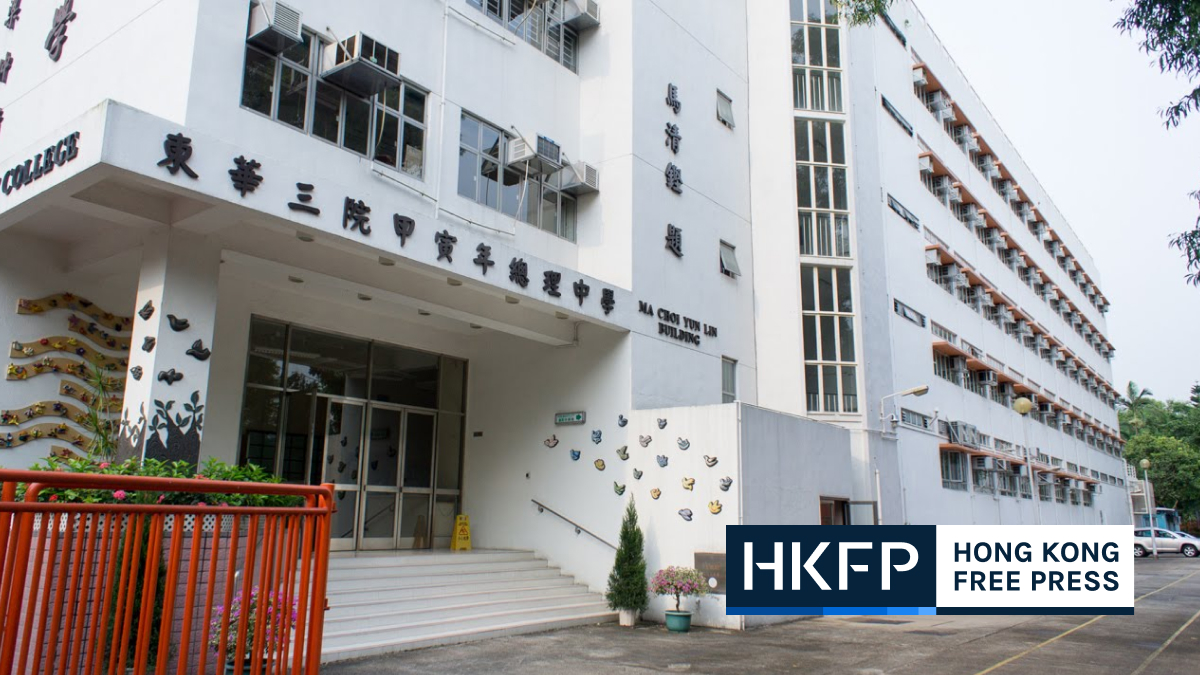
Students at 2 Hong Kong schools not singing China’s national anthem loudly enough, inspections find
Support HKFP | Code of Ethics | Error/typo? | Contact Us | Newsletter | Annual & Transparency Report

Irene Chan Senior Reporter
Irene Chan is a reporter at Hong Kong Free Press and has an interest in covering political and social change. She previously worked at Initium Media as chief editor for Hong Kong news and was a community organiser at the Society for Community Organisation serving the underprivileged. She has a bachelor’s degree in Journalism from Fudan University and a master’s degree in social work from the Chinese University of Hong Kong.
Irene is the recipient of two Society of Publishers in Asia (SOPA) awards and three honourable mentions for her investigative, feature and video reporting. She also received a Human Rights Press Award for multimedia reporting and an honourable mention for feature writing.
HKFP is a proud member of:

Subscribe to HKFP's newsletters
- HKFP Dim Sum Our best features, interviews & original reporting, sent on Mondays.
- HKFP Daily Digest A digest of all HKFP stories from the day, sent at 9pm daily.
Unsubscribe at any time. HKFP will never share your details with third parties.
Latest Stories
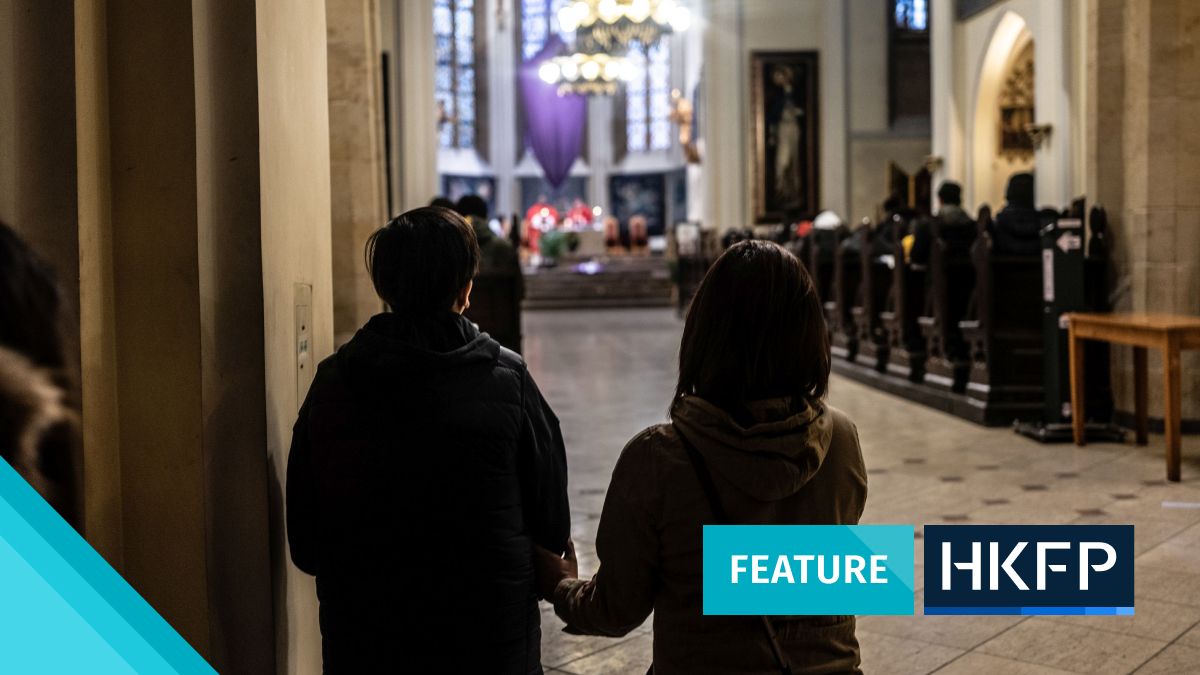
Low pay, poor conditions: These Filipino workers were drawn to Poland. Now they want to leave
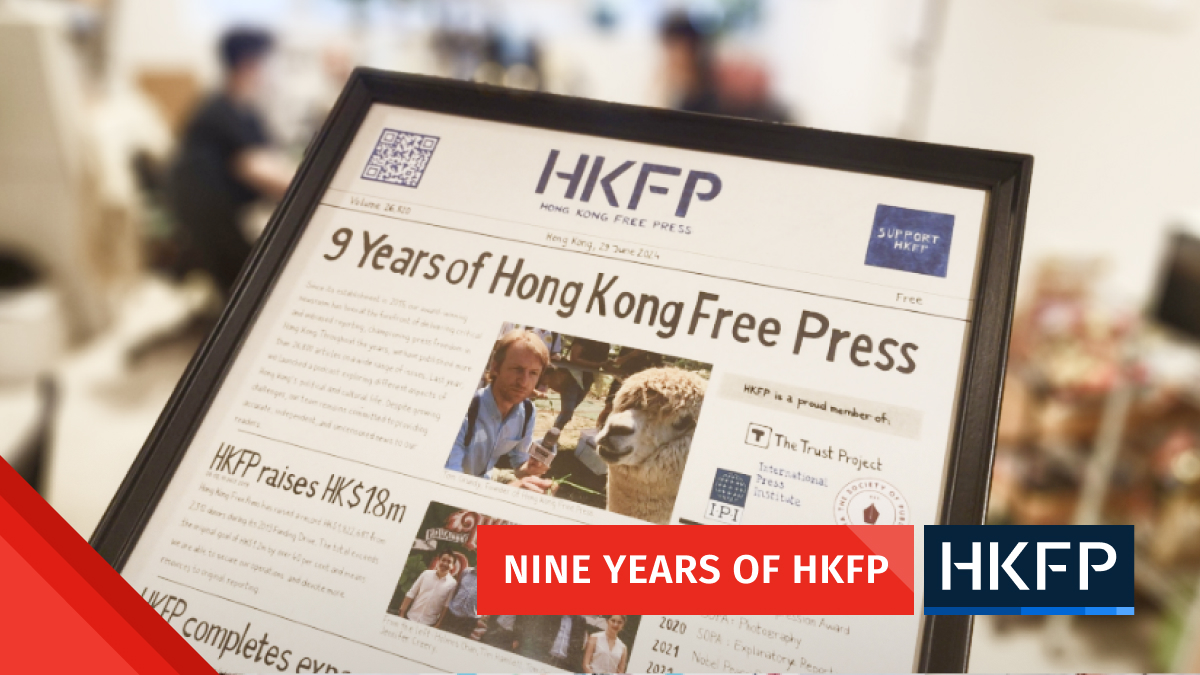
9 Years of HKFP: Keeping boots on-the-ground alongside Hongkongers – thanks to your support
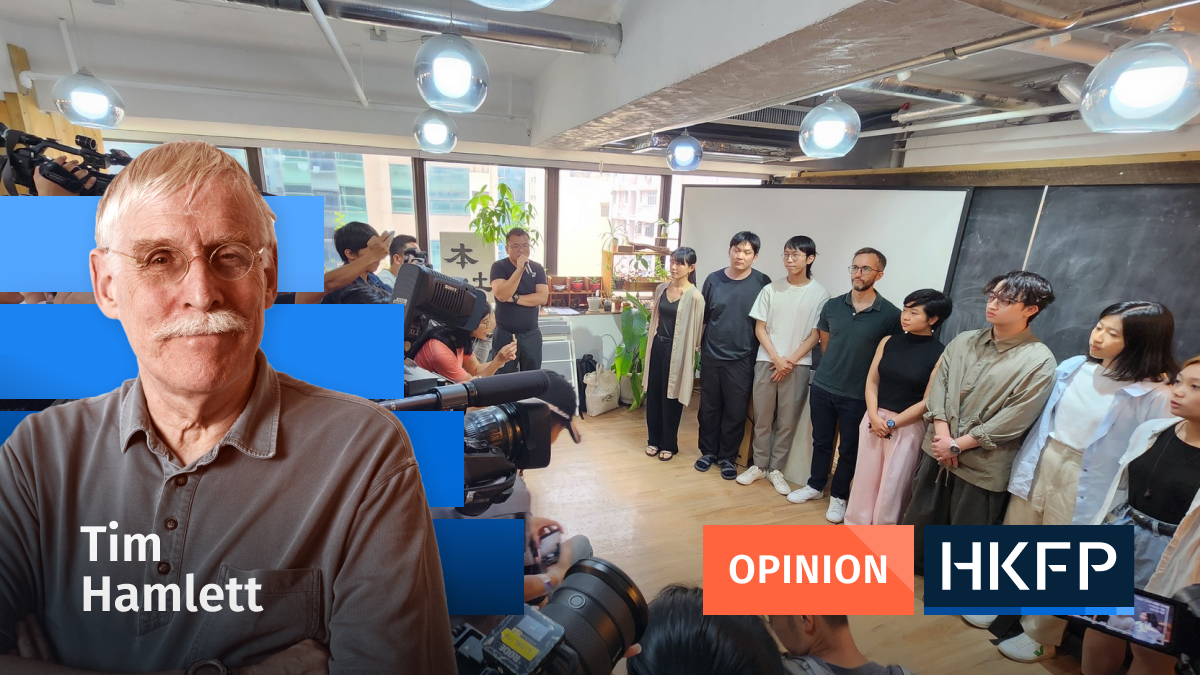
HKJA: Why is Hong Kong’s largest press group once again in the government’s crosshairs?
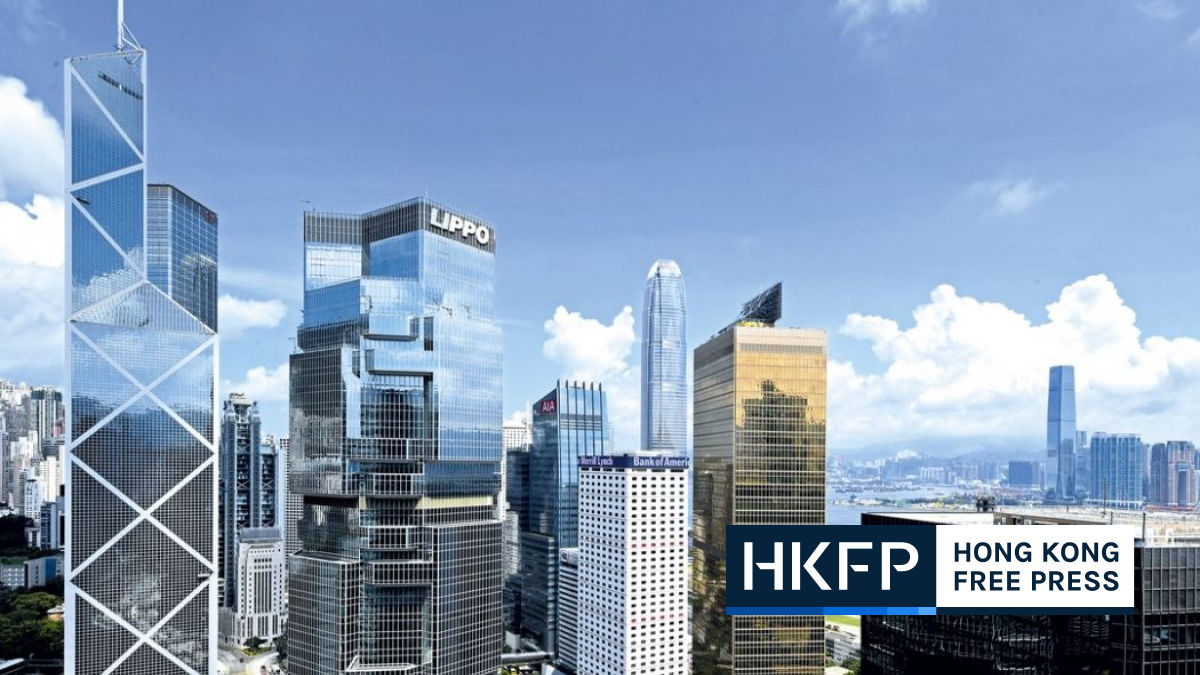
I.M. Pei reshaped Hong Kong’s skyline, now his life and legacy are on display at M+ museum

China’s Xi Jinping vows more ‘market-oriented, legal and int’l business environment’
Rise in Chinese visitors’ duty-free allowance expected to add at least HK$2.7 billion to Hong Kong economy
Something went wrong. Please refresh the page and/or try again.
features & interviews

On this day: 28 years on, Hong Kong artists and researchers bring a moment in 1996 back to life
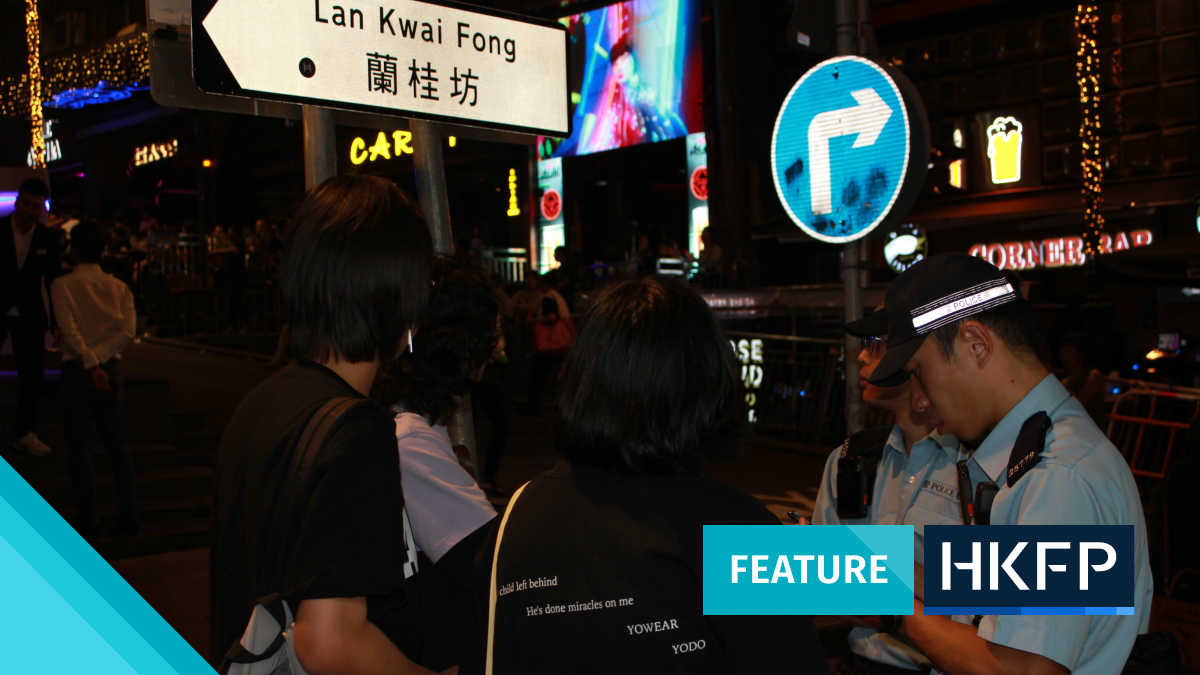
Hardcore Hong Kong: Young mainland Chinese make a cross-border pilgrimage in search of underground music scene
Don’t trash the tax: Ex-official, green groups say Hong Kong more prepared for waste tax than government thinks

Exclusive: HSBC closed accounts of jailed 2019 democracy protesters without providing a reason
Views expressed by opinion writers & advertisers are not necessarily shared by HKFP.
Where to find HKFP:
- HKFP Mobile Apps .
- HKFP Newsletter .
- HKFP Podcast .
- HKFP Facebook .
- HKFP Instagram .
- HKFP LinkedIn .
- HKFP Mastodon .
- HKFP Telegram .
- HKFP X/Twitter .
- HKFP YouTube .
- HKFP Apple News .
- HKFP Flipboard .
- HKFP News360 .
- HKFP Pushbullet .
- HKFP Whatsapp .
About HKFP:
- Advertise with HKFP .
- Announcements .
- Contact HKFP .
- Community Guidelines .
- Corrections Policy .
- Corrections Log .
- Documentary on HKFP .
- Freelance Charter .
- Newspaper Registration (periodical) .
- Policies, Ethics & Standards .
- Privacy, T's & C''s .
- Security Law .
- Staff Roster .
HKFP Partnerships:

Most-read stories today

About The Trust Project
The Trust Project is a collaboration among news organizations around the world. Its goal is to create strategies that fulfill journalism’s basic pledge: to serve society with a truthful, intelligent and comprehensive account of ideas and events.
The Straits Times
- International
- Print Edition
- news with benefits
- SPH Rewards
- STClassifieds
- Berita Harian
- Hardwarezone
- Shin Min Daily News
- Tamil Murasu
- The Business Times
- The New Paper
- Lianhe Zaobao
- Advertise with us
China to raise duty-free limit for mainland visitors to Hong Kong, Ming Pao says
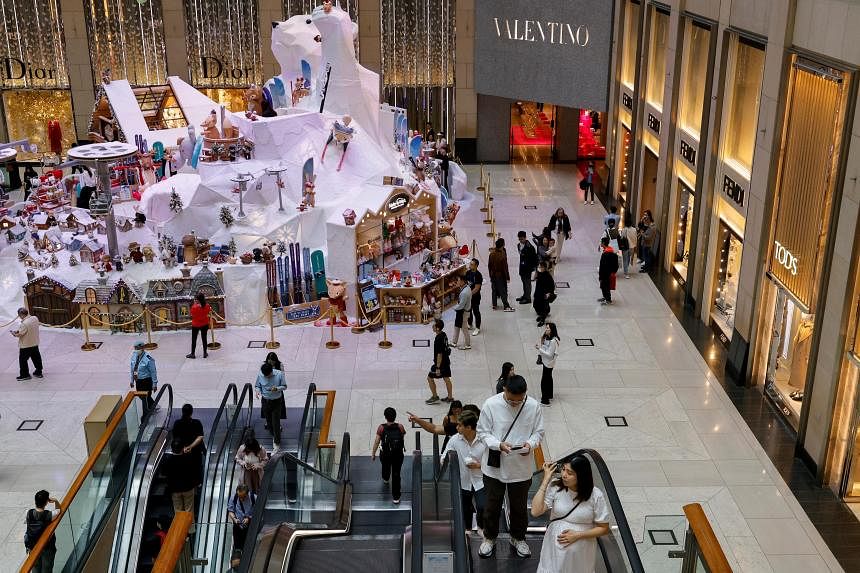
HONG KONG - Chinese tourists will soon be allowed more duty-free shopping in Hong Kong, with Beijing set to raise the purchasing limit by up to sixfold to help boost the city’s sluggish retail sector, according to a newspaper report on June 27.
The Chinese government will soon announce the measure to raise the duty-free shopping quota, currently capped at 5,000 yuan (S$930), to “lower than 30,000 yuan”, according to Ming Pao, which cited unnamed sources.
While Hong Kong does not levy tariffs on most imports and exports, items bought in the city, when brought back to mainland China, are taxed on values exceeding the duty-free allowance.
Hong Kong has been struggling to regain its status as a shopping hub, as mainland visitors – the city’s largest source of tourism – are increasingly attracted to nearby rivals such as tax-free island Hainan and casino town Macau. Japan, with its weak currency, has also been gaining more duty-free shoppers from the region.
The reported move also comes as mainland Chinese tourists, grappling with a property market crisis and slower wage gains, have shifted to sightseeing and eating in Hong Kong rather than splashing out on Louis Vuitton handbags and smartphones. BLOOMBERG
Join ST's Telegram channel and get the latest breaking news delivered to you.
Read 3 articles and stand to win rewards
Spin the wheel now
We've detected unusual activity from your computer network
To continue, please click the box below to let us know you're not a robot.
Why did this happen?
Please make sure your browser supports JavaScript and cookies and that you are not blocking them from loading. For more information you can review our Terms of Service and Cookie Policy .
For inquiries related to this message please contact our support team and provide the reference ID below.

IMAGES
COMMENTS
For persons (arriving at Hong Kong from August 4) who have not been fully vaccinated, and who have stayed in places in the Mainland other than Guangdong Province or Macao during the relevant period (i.e. the day of arrival at Hong Kong and during the 14 days before that day), they are subject to compulsory quarantine for 14 days at home, and ...
Inbound persons arriving from the Mainland or Macao. Inbound persons arriving from Taiwan or places outside China. All pre-departure and post-arrival quarantine and testing requirements have been removed. All pre-departure and post-arrival quarantine and testing requirements have been removed. All inbound persons must pass temperature checks ...
Hong Kong's new measures comes more than 900 days after the city first enacted border restrictions in March 2020 and nearly two years after it mandated hotel quarantine for all international ...
But the minister said that by the time when a much-anticipated summit of global financiers and top bankers was held on November 1 and 2 by the Hong Kong Monetary Authority, the word "quarantine ...
Hong Kong is relaxing travel restrictions with a "3+4" quarantine model, as it takes a step towards gradually reopening borders. A woman walks past a flight information board at Hong Kong ...
The resumption of travel between Hong Kong and mainland China looks to be making positive progress, after Chief Executive Carrie Lam Cheng Yuet-ngor announced on Tuesday that two quarantine-free ...
Quarantine-free travel advocated. With the adoption of stringent measures to prevent the importation of COVID-19 cases, Hong Kong has successfully prevented imported cases from spreading into the community and maintained zero local infection. As the epidemic situation is clearly under control, Hong Kong people hope that quarantine-free travel ...
Under the "Come2hk" quarantine-free scheme starting on Sept 15, non-Hong Kong residents who live and work in the mainland and Macau, including mainlanders and expatriates, will be able to enter ...
Hong Kong leader Carrie Lam will ask authorities in mainland China what the city must do in order to start quarantine-free travel after a virus outbreak in the financial hub.When asked about the ...
The city will start a "Come2hk" travel program on Sept. 15 that will allow up to 2,000 non-Hong Kong residents per day from the mainland and Macau to visit the city, Hong Kong Chief Executive ...
Hong Kong will allow people from mainland China to visit without having to face its quarantine procedures in the city's first serious relaxation of its strict Covid-19 entry requirements for ...
Hong Kong's Secretary for Health Lo Chung-mau said halting quarantine was "an unreasonable expectation" for the time being: "Some people hope for quarantine-free travel, which is to open ...
Hong Kong travellers would also have to present a green health code issued by the city - indicating a low risk of Covid-19 infection - to be eligible to forego mainland quarantine, which lasts ...
Font. China and Hong Kong will start quarantine-free travel as soon as January, media outlet HK01 reported, as the mainland rapidly unwinds its Covid Zero measures. Travel could resume as soon as ...
HONG KONG -- Hong Kong and Singapore have agreed to launch a travel bubble from May 26. If all goes to plan, the long-delayed scheme will allow travelers to fly between two of Asia's largest ...
Hong Kong leader John Lee has said the first stage of the upcoming China-style health code system will only apply to those infected with Covid-19 and incoming travellers, but did not rule out ...
Hong Kong is working to resume quarantine-free travel with mainland China by as early as Jan. 8, Chief Secretary Eric Chan Kwok-ki said in a Facebook post on Sunday.
Jul 08, 2022, 07:33 PM. HONG KONG (BLOOMBERG) - Hong Kong's new health chief has rejected calls for quarantine-free travel in the near future and to live with Covid-19, even as the city relaxes ...
Hong Kong has announced a plan to reopen with quarantine-free travel, which is an exciting development. However, don't expect that this will attract many visitors, as Hong Kong will still require pre-travel testing, up to four tests on arrival, and a surveillance period of three days.
Travelers to Hong Kong could be allowed to skip Covid-19 quarantine — but with certain conditions attached — by November, according to an exclusive interview by the South China Morning Post with the city's secretary for health, Lo Chung-mau.. In the interview, published on Wednesday, Lo said Hong Kong might opt for a different approach to lowering the risk of importation of the virus by ...
Hong Kong's new health chief said conditional quarantine-free travel could be allowed by November in time for a global bankers' summit to be held in the city, the South China Morning Post ...
Hong Kong's financial regulator unveiled rules for quarantine-free business travel to the Chinese mainland, laying out some of the first details in the long-awaited plan to re-open the border.
General city view of Taipei, Taiwan on January 11, 2024. Photo: Kyle Lam/HKFP. It continued: " If there is a need to travel to mainland China, Hong Kong, or Macau, it is advised to avoid ...
Hong Kong's new health chief has rejected calls for quarantine-free travel in the near future and to live with Covid-19, even as the city relaxes some restrictions amid a surge in cases.
The duty-free shopping quota, now capped at 5,000 yuan, will be raised to "lower than 30,000 yuan". Read more at straitstimes.com.
Hong Kong will be able to sustain its success if it believes in the country's support and continues to embrace its valuable "spirit", Beijing's top man in the city has said ahead of the ...
Chinese visitors will be allowed up to 15,000 yuan ($2,064) of duty-free shopping in Hong Kong and Macau starting next week, around twice the current limit, as authorities try to help the cities ...